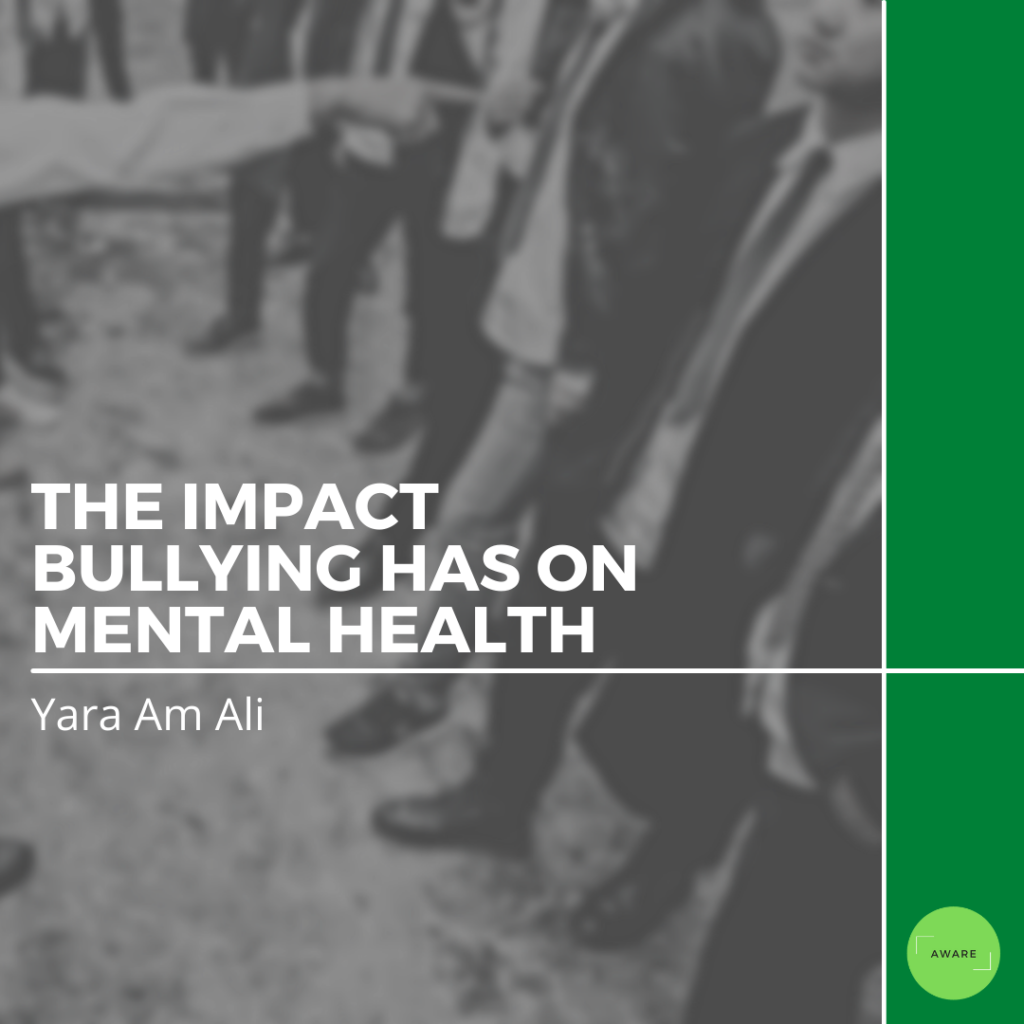Bullying is aggressive violent behavior that involves a power imbalance, usually among school aged children. This behavior is usually repeated or has the possibility of being repeated, usually with an intention to harm the other. The imbalance of power, whether actual or perceived, is characterized by the strength difference – physical, financial, or status – between the bully and the bullied.
Bullying has many forms, including social, physical, and verbal. Social bullying manifests in the form of damaging relationships or reputations, through spreading rumors about someone, excluding them, embarrassing them, etc. Physical bullying involves pushing, hitting, breaking belongings, and much more. Verbal bullying can include name-calling, teasing, and inappropriate comments amongst others.
Children or young people who experience being bullied are likely to suffer from social, physical, mental, and academic issues.
The Negative Impact on Mental Health
The aftermath of bullying has been researched heavily, and studies conclude that self-harm, academic setback, or failure, as well as low self-esteem are common outcomes of being bullied. Children who are bullied will likely suffer from health issues, feelings of loneliness and anhedonia, sleep disturbances, and a likeliness to act out and skip or drop out from school.
The social withdrawal and lack of ability to form friends for victims of bullying can have lasting effects on how the child may feel. They tend to develop a feeling of learned helplessness when they feel that they are not being helped or noticed. Learned helplessness implies that they believe that they are unable to change the circumstance. As a result, they give up. Then, the downward spiral into depression gets even more acute. This creates a sense of hopelessness and a conviction that there is no way out. They may also feel angry, frustrated, and vulnerable, among a range of other emotions, which eventually can lead to suicide contemplation. The level of anxiety formed from having to face your bullies at school can also worsen symptoms and lead to physical health issues as anxiety tends to manifest physically.
It is important to note that the effects of bullying can continue far into adulthood. In comparison to people who were not bullied as children, young victims of bullying have increased rates of agoraphobia, depression, anxiety, panic disorder, and suicidality in their early to mid-twenties, according to studies. Additionally, adults who were bullied frequently as children had a higher risk of poor psychiatric outcomes later in life, such as depression, anxiety disorders, and suicidality. According to other studies, those who were bullied as children had difficulty with social interactions, poor physical health, and financial challenges as adults.
What to do if you or someone you know is getting bullied?
If you are a student and you see someone get bullied or harmed, do your duty and report it to someone in a place of authority. If you feel scared to do so, tell a parent or adult in your life so that they can take appropriate action without the fear of any consequences to you. Additionally and more importantly, the Child Protection Centre in the UAE provides a hotline – dial 800-988 or 116111 – where individuals can report any form of bullying and other child harassments. The Hemayati smart phone application is also another option that can be used for help in similar situations.
What can educational institutions do?
It is important to provide a safe space for students and encourage speaking up. By emphasizing the importance of reaching out for help without consequence, children will be more likely to pursue help from adults and professionals to stop all kinds of abuse they are enduring. Making sure students will not suffer socially or be compromised when they report behavior they are inflicted to or see happen to other peers is also crucial. Lots of students are afraid of being accused of “snitching” and involving adults in matters such as this, so they tend to refrain from talking about what they go through. So, when action is taken with caution and without compromising the student in question, the problem can be overcome without fear of social isolation or humiliation. It is also helpful to set up anonymous hotlines like a phone number or email to report such behaviors, as well as hold anti-bullying talks and events. We have unfortunately seen that some bullying incidents around the world go so far to the point where the victims end up losing their lives. This is usually because the behaviors go unnoticed or adults in power and supervisors do not give them the level of importance they should give. By setting up committees that tackle such issues, bullies would face the repercussions of their actions, as well as the help they need if they are going through something, and victims will be saved and aided before it is too late.
